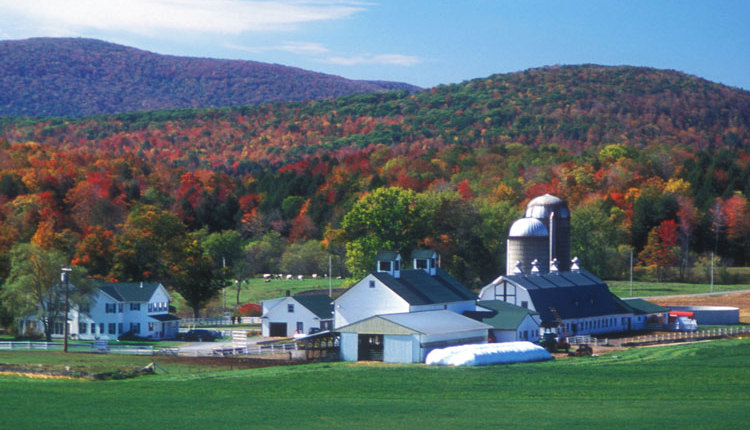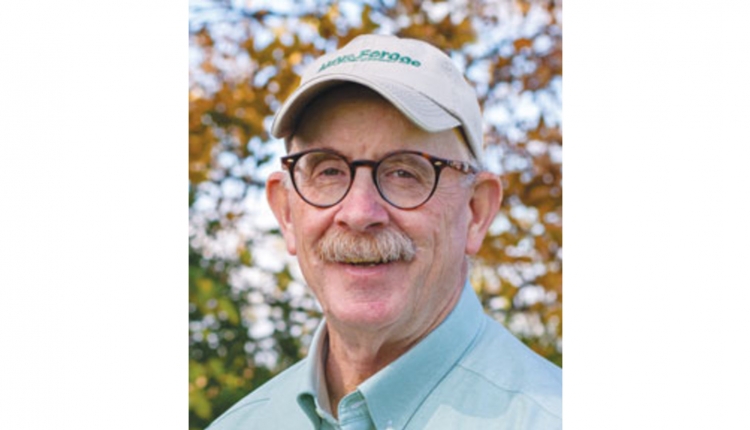
This column is almost always the last thing to get written for an issue of this magazine, and I’m often asked, “How do you think of things to write about?”

Unlike doing an article on a specific farm or designated topic, the forage world is my grocery store candy aisle from which to pick topics for this column. I can go a multitude of directions, and I guess that’s why it makes it hard to get started, and why this is usually the last horse out of the barn. That said, starting a column doesn’t compare to starting a farm.
Nothing is accomplished until we get started, but that initial dive into untested waters can sometimes be thwarted by fear, indecision, uncertainty, or a lack of knowledge. I graduated from college with every intention of someday farming on my own. Of course, I had no home farm to return to, so the plan was to work for someone else and build equity, which I did.
For all the reasons listed above and more, I never did take the plunge and get started farming on my own, but I have no regrets. What I’ve done since has never taken me far from the farm and farmers.
My own experience is perhaps why I’m always interested in how others started farming. It’s a question I ask during every interview, and the responses never cease to amaze me. Given the difficulty to simply start farming these days, you might think that most people simply came back to the family farm and continued what their parents and generations before had always done. Certainly, that’s the story for a lot of operations, but it’s not for many others.
I’ve found that even a return to the family farm may mean the start of a new enterprise so that the farm could support one more family. That new enterprise was often the addition of a commercial hay or custom forage harvesting business on an existing row-crop or livestock farm. I talked to three individuals during this past summer who got their start this way — two well-established and one in the early stages of his commercial hay producer career.
For sure, going back to the home farm gives a person a leg up to get started, even when getting a new enterprise off the ground. That’s why the other common story I hear is even more admirable. It generally goes something like this:
“I’m a first-generation farmer. I worked for a neighboring farm while in high school (or college) and eventually was able to buy a used tractor and a (fill in the blank with a junk hay stacker or baler) to start doing custom work. Eventually, I was able to lease a field to make my own hay. From there, I leased another, and another, until I could upgrade my equipment. Things just grew from there . . .”
Often, these same farmers are currently baling hundreds of acres of hay and some are operating some of the most successful operations in the country.
I’ve heard several similar stories from custom forage harvesters who started driving silage trucks for someone else and eventually worked their way up to their own custom forage harvesting business.
Of course, it’s also not unusual to hear start-up stories from grazing-based livestock operations. Again, these individuals start with a few cows, lease a few acres, and grow with the years. Unlike machinery and land, cows have the ability to multiply themselves.
All of this brings us to the question of whether a young person can start farming today or if we have reached the point where the current economies of agriculture have made that dream improbable, if not impossible.
If you’re a glass-half-full person, as I am, the dream of starting a farm still remains attainable. In my lifetime, it seems that passion and drive have always been able to overcome economic obstacles. I will bet any amount of money that in 25 years, agricultural writers will be penning stories about farmers who started with a used hay stacker, baler, or silage truck in 2023.
None of this is to suggest that starting from nothing is easy. It’s not. Without exception, the start-up stories I have heard and written about over the years always involve a trusted mentor, adviser, and/or someone who gave them a break along the way. Sometimes it was a family member, but it’s also not uncommon for that person to be a neighbor, an employer, or a lender. Everyone needs a break and some luck to assist passion and drive.
Happy foraging,

This article appeared in the November 2023 issue of Hay & Forage Grower on page 4.
Not a subscriber? Click to get the print magazine.

